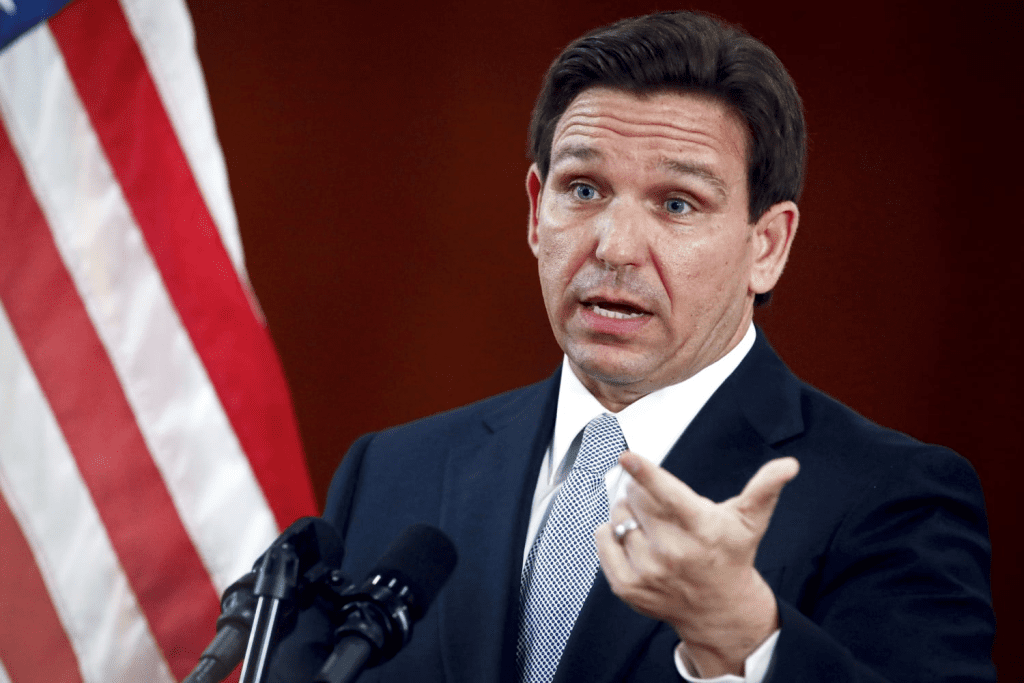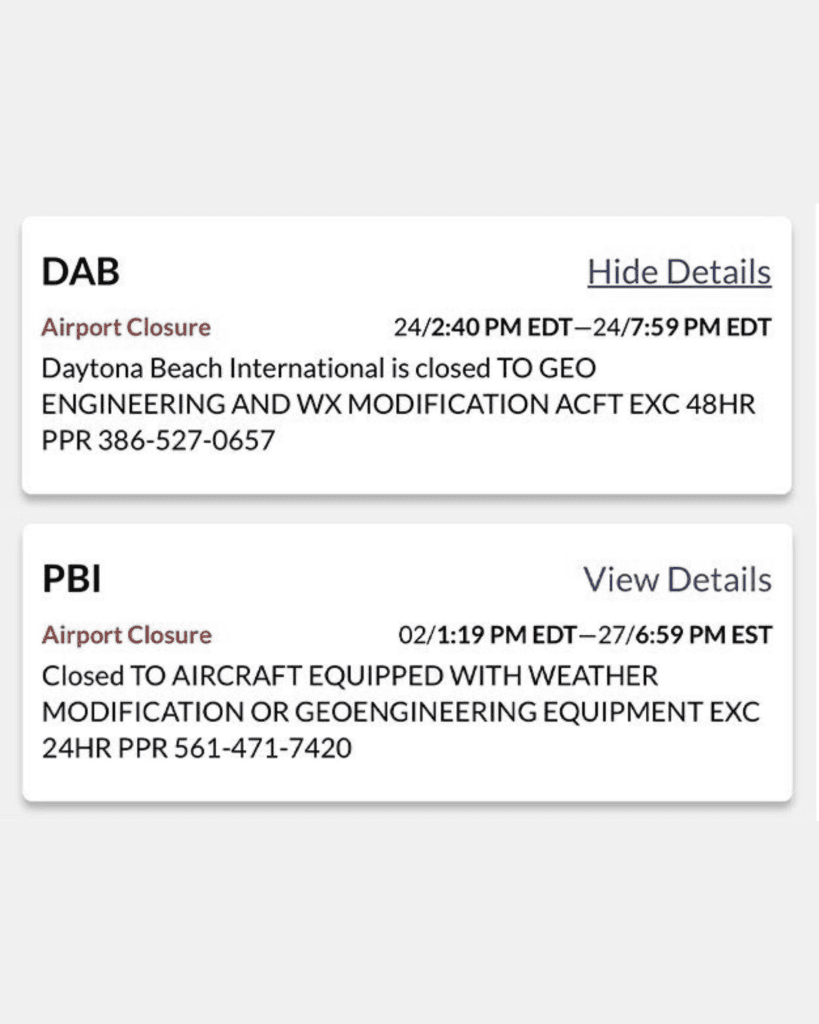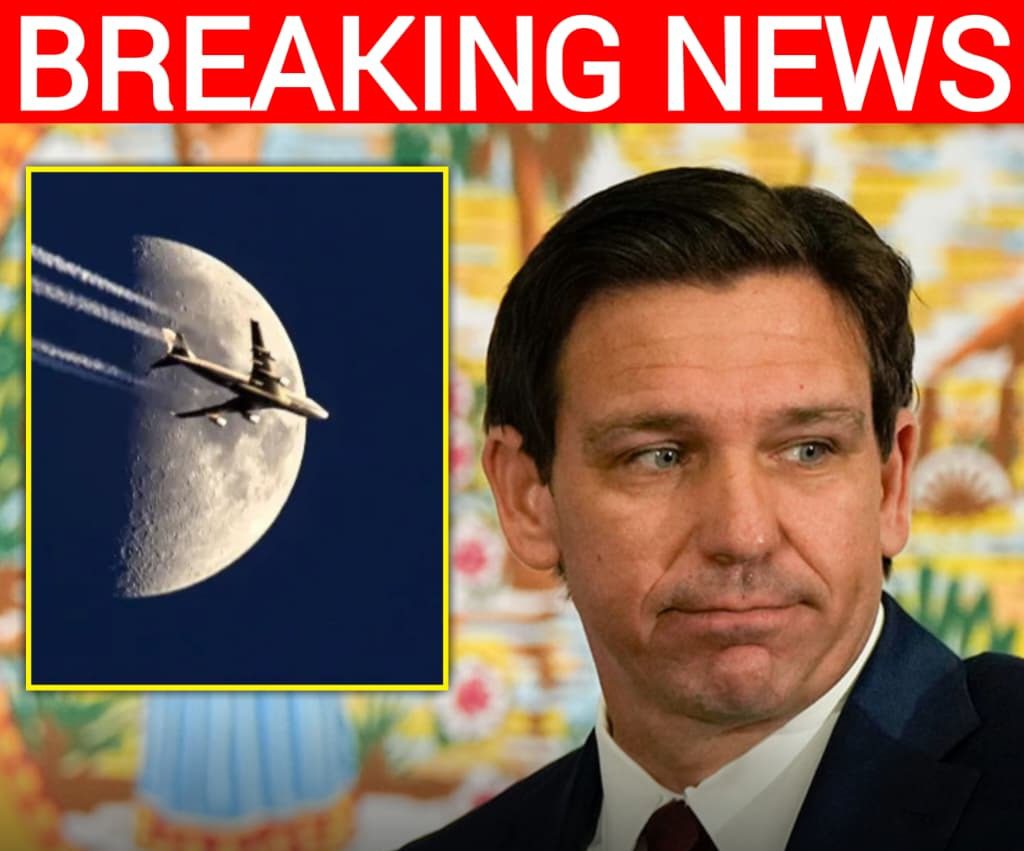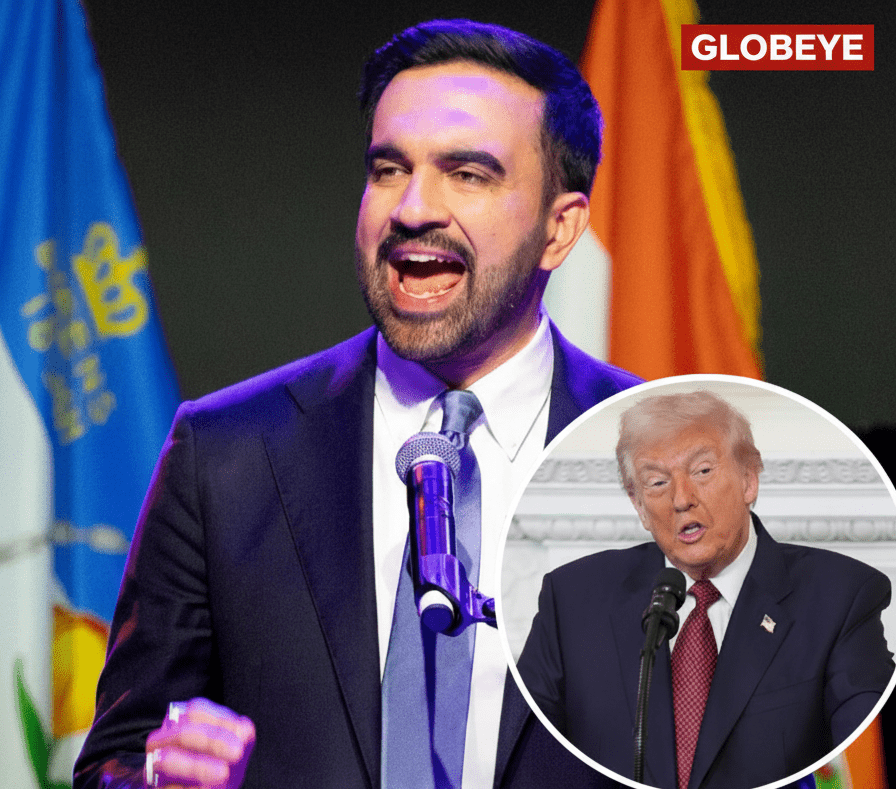Governor Ron DeSantis Enforces SB 56: Florida Bans Weather Modification and Geoengineering Flights, Citing Public Safety and Environmental Concerns
Florida has officially drawn a hard line against weather modification and geoengineering operations, enforcing one of the most stringent laws in the country to regulate atmospheric experimentation. Governor Ron DeSantis’ administration began implementing Senate Bill 56 this week, a law that bans all forms of weather modification and geoengineering across the state. The measure, which went into effect on October 1, 2025, has now led to temporary airport closures for aircraft associated with such activities — marking a bold and highly scrutinized step in environmental governance.

According to the Florida Attorney General’s office, the law is being enforced through immediate restrictions at airports including Daytona Beach International (DAB) and Palm Beach International (PBI). Notices issued by the Federal Aviation Administration confirmed closures to any aircraft “equipped with weather modification or geoengineering equipment.” The directive, signed by Attorney General James Uthmeier, ensures that state aviation authorities are aligned with the new legal requirements. The enforcement signals Florida’s commitment to maintaining state control over its airspace when it comes to what officials describe as “unauthorized atmospheric interference.”
Senate Bill 56, introduced earlier this year and signed by DeSantis in June, classifies any violation as a third-degree felony. Those found operating weather-modifying or geoengineering aircraft within the state could face up to five years in prison and a $5,000 fine. The law defines geoengineering as any activity designed to artificially alter the atmosphere or climate, including cloud seeding, aerosol dispersion, and solar radiation management — controversial practices that have long sparked debate among environmentalists, scientists, and policymakers.

Supporters of the legislation say the move restores accountability and transparency to environmental management. They argue that private and corporate experiments involving the atmosphere have proceeded for too long without adequate public oversight. The governor’s office framed the decision as part of Florida’s broader initiative to safeguard both its environment and the constitutional rights of its residents. “We will not allow unregulated or experimental weather modification in our skies,” an official spokesperson said. “Floridians deserve to know what’s happening above them, and this law ensures that any attempt to manipulate the atmosphere without state authorization will face serious consequences.”
Critics, however, warn that the law could overreach or hinder legitimate scientific research. Some meteorologists and academic institutions fear that the sweeping language could restrict studies related to cloud formation or weather pattern observation. Others suggest that the legislation is politically charged, aimed more at signaling state independence than addressing proven environmental harm. Still, even those skeptical of the measure admit that the rapid pace of enforcement — within a week of taking effect — underscores the administration’s determination.

Attorney General Uthmeier defended the action as a matter of sovereignty, saying the law is not about silencing science but protecting citizens. “This is about ensuring that no one tampers with our atmosphere without accountability,” he said in a statement Tuesday. “Florida has made it clear — we won’t be a testing ground for experimental atmospheric manipulation.”
The public response has been sharply divided online. Supporters have praised the move as a landmark defense against “uncontrolled climate engineering,” while detractors question whether the law addresses any real threat or simply amplifies public distrust of scientific institutions. Social media posts from environmental activists, pilots, and policy analysts flooded platforms like X (formerly Twitter) and Facebook, with the hashtag #FloridaSkyLaw trending statewide.

As the debate unfolds, the immediate impact is tangible: airports have begun turning away certain aircraft, operators are reviewing compliance procedures, and both state and federal agencies are monitoring reactions closely. Florida’s decision could prompt similar actions in other states, potentially igniting a nationwide conversation about the ethics, legality, and future of weather modification technology.
For now, Florida’s skies are off-limits to anyone attempting to alter them — a move that blends environmental protection, political symbolism, and public sentiment into one defining moment for state governance in 2025.



